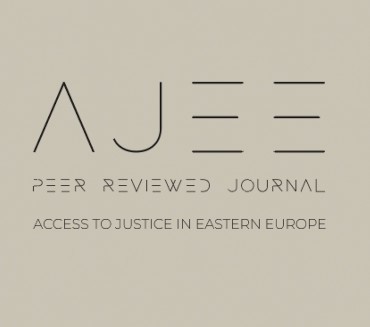1. Introduction. – 2. Research Methodology. – 3. Fight Against Organised Crime – Participation in a Criminal Organisation. – 4. Combating Terrorism. – 5. Illicit Drug Trafficking. – 6. Arms Trafficking. – 7. Human Trafficking and Sexual Exploitation of Women and Children. – 8. Environmental Crime. – 9. Conclusion.
Background: This paper addresses key issues related to the tools used to approximate the definitions of selected crimes within specific areas of the fight against organised crime. Despite the pursuit of communitarisation, some legal constitutions have remained rooted in an intergovernmental approach. Accordingly, this article examines individual international documents that served as the basis for selected international criminal offences incorporated into the Slovak Criminal Code. As with any process of harmonisation involving the legal regulations of individual states, aligning European Union law with Slovak Criminal Law was not easy, and many application problems arose. In this article, we focus on these challenges and explore possible solutions.
Methods:
In this contribution, standard methods commonly employed in the processing of scientific and professional texts focused on "European" criminal law were applied. The dominant method was the so-called analytical method, mainly used to examine current legislation related to the discussed issue. Additionally, a content and functional analysis of the most important institutes, which were contained in relevant international documents and important court decisions, was carried out. In the case of comparisons between Slovak and European legislation, a comparative method was used. Subsequently, conclusions were formulated using the synthetic method, the aim of which was to present proposals to eliminate shortcomings and improve the current legislation.
Results and Conclusions:
Through the analysis and comparison of relevant legal frameworks, several findings emerged. Specifically, we have found that the Slovak Criminal Code understands the concept of "organised criminal group" significantly more broadly than the relevant Framework Decision. This fact could cause problems in the recognition of decisions by other states. Additionally, the absence of a uniform definition of the concept of "terrorism" within the European Union is problematic as it may lead to inconsistencies that interfere with fundamental human rights and freedoms. In the field of drug trafficking, while no significant application problems were found in connection with the application of European Union law and the Criminal Code, disparities across the entire European Union, particularly in the criminalisation/decriminalisation of selected types of drugs and the varying severity of sanctions imposed by Member States. For arms trafficking, flaws were identified in the implementation of the relevant protocol into Slovak law, particularly in the definition and treatment of firearms parts and components. In cases of trafficking in human beings committed by a legal entity, the Criminal Code fails to meet the requirements of the relevant directive regarding the punishment of legal entities. Finally, the directive on environmental crimes contains vague terms which may cause application problems when approximating the provisions of the directive in relation to other states.

